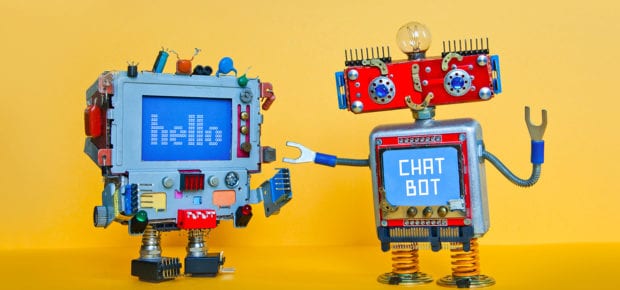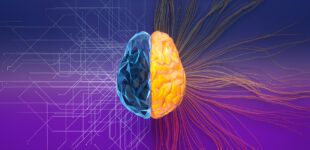July 6, 2018
Chatbots and games might not seem like the most intuitive providers of health information. After all, why not just go to a doctor? For many people around the world, this technology is helping ease two barriers that prevent them from getting the care they need: distance and money.
First, for people in remote areas, the nearest health clinic can be a long distance away. In situations where time is of the essence, getting a quick diagnosis from a chatbot could be the difference between life and death. Even when the situation isn’t dire, traveling great distances can prevent people from getting health guidance that could otherwise improve their lives.
Money can also be a major barrier to care. Services like therapy aren’t cheap: “In the United States, for example, a patient’s average cost of therapy without health insurance is $150 per session,” says this article from The Institute. If chatbots can use natural language processing and machine learning to serve as a virtual therapist, and do it for a lot less money, people are more likely to seek the help they need.
One other aspect to consider is emotion: since young children are often afraid of doctors, alternative methods of diagnosis are appealing. “The AI of games are able to diagnose and treat a number of problems such as attention deficit hyperactivity disorder (ADHD), autism, visual sequential memory deficiency, speech disorders, etc. Already, some of these games have been submitted to the FDA for government approval, and more are to follow in the future,” says Shervin Shirmohammadi, IEEE Fellow and Professor in the School of Electrical Engineering and Computer Science, University of Ottawa.
So, just how likely is it that these promising technologies will catch on?
For starters, chatbots that serve as a general practitioner’s assistant already exist. And overall, “Chatbots are gradually gaining attention in the healthcare industry,” says IEEE member Sukanya Mandal. “But this is the initial stage where chatbots have just been introduced to the market. A lot of development awaits in terms of accuracy, trust, fairness and accountability in order to be widely accepted by the audience.”
Trust and accuracy are both obviously important. More fundamental challenges also exist: those with limited accessibility to care may not be able to relay their symptoms “either because they are too sick, don’t read or write or don’t have access to communication systems,” says Karen Panetta, IEEE Fellow and Dean of Graduate Engineering at Tufts University. “Even the best chatbot can’t help you if you don’t have internet connectivity.”
Several major companies have entered the race to create blimp and drone-based wireless networks, though the timeline for when such technologies could become widespread remains a bit unclear. In that sense, the adoption of medical chatbots globally is somewhat tied to the future of internet service in the developing world.
To read more about chatbots as a potential means of diagnosis, as well as how Millennial parents around the world feel about using one to analyze their child, read our 2018 study on Generation AI.





 Meaningful Momentum or Running in Place?
Meaningful Momentum or Running in Place? AI Through Our Ages
AI Through Our Ages Liquid Infrastructure: Our Planet's Most Precious Resource
Liquid Infrastructure: Our Planet's Most Precious Resource The Impact of Technology in 2025
The Impact of Technology in 2025 Quantum and AI: Safeguards or Threats to Cybersecurity?
Quantum and AI: Safeguards or Threats to Cybersecurity? Why AI Can't Live Without Us
Why AI Can't Live Without Us Bits, Bytes, Buildings and Bridges: Digital-Driven Infrastructure
Bits, Bytes, Buildings and Bridges: Digital-Driven Infrastructure Impact of Technology in 2024
Impact of Technology in 2024 Emerging AI Cybersecurity Challenges and Solutions
Emerging AI Cybersecurity Challenges and Solutions The Skies are Unlimited
The Skies are Unlimited Smart Cities 2030: How Tech is Reshaping Urbanscapes
Smart Cities 2030: How Tech is Reshaping Urbanscapes Impact of Technology 2023
Impact of Technology 2023 Cybersecurity for Life-Changing Innovations
Cybersecurity for Life-Changing Innovations Smarter Wearables Healthier Life
Smarter Wearables Healthier Life Infrastructure In Motion
Infrastructure In Motion The Impact of Tech in 2022 and Beyond
The Impact of Tech in 2022 and Beyond Cybersecurity, Technology and Protecting Our World
Cybersecurity, Technology and Protecting Our World How Technology Helps us Understand Our Health and Wellness
How Technology Helps us Understand Our Health and Wellness The Resilience of Humanity
The Resilience of Humanity Harnessing and Sustaining our Natural Resources
Harnessing and Sustaining our Natural Resources Creating Healthy Spaces Through Technology
Creating Healthy Spaces Through Technology Exceptional Infrastructure Challenges, Technology and Humanity
Exceptional Infrastructure Challenges, Technology and Humanity The Global Impact of IEEE's 802 Standards
The Global Impact of IEEE's 802 Standards Scenes of our Cyber Lives: The Security Threats and Technology Solutions Protecting Us
Scenes of our Cyber Lives: The Security Threats and Technology Solutions Protecting Us How Millennial Parents are Embracing Health and Wellness Technologies for Their Generation Alpha Kids
How Millennial Parents are Embracing Health and Wellness Technologies for Their Generation Alpha Kids Space Exploration, Technology and Our Lives
Space Exploration, Technology and Our Lives Global Innovation and the Environment
Global Innovation and the Environment How Technology, Privacy and Security are Changing Each Other (And Us)
How Technology, Privacy and Security are Changing Each Other (And Us) Find us in booth 31506, LVCC South Hall 3 and experience the Technology Moon Walk
Find us in booth 31506, LVCC South Hall 3 and experience the Technology Moon Walk Virtual and Mixed Reality
Virtual and Mixed Reality How Robots are Improving our Health
How Robots are Improving our Health IEEE Experts and the Robots They are Teaching
IEEE Experts and the Robots They are Teaching See how millennial parents around the world see AI impacting the lives of their tech-infused offspring
See how millennial parents around the world see AI impacting the lives of their tech-infused offspring Take the journey from farm to table and learn how IoT will help us reach the rising demand for food production
Take the journey from farm to table and learn how IoT will help us reach the rising demand for food production Watch technical experts discuss the latest cyber threats
Watch technical experts discuss the latest cyber threats Explore how researchers, teachers, explorers, healthcare and medical professionals use immersive technologies
Explore how researchers, teachers, explorers, healthcare and medical professionals use immersive technologies Follow the timeline to see how Generation AI will be impacted by technology
Follow the timeline to see how Generation AI will be impacted by technology Learn how your IoT data can be used by experiencing a day in a connected life
Learn how your IoT data can be used by experiencing a day in a connected life Listen to technical experts discuss the biggest security threats today
Listen to technical experts discuss the biggest security threats today See how tech has influenced and evolved with the Games
See how tech has influenced and evolved with the Games Enter our virtual home to explore the IoT (Internet of Things) technologies
Enter our virtual home to explore the IoT (Internet of Things) technologies Explore an interactive map showcasing exciting innovations in robotics
Explore an interactive map showcasing exciting innovations in robotics Interactively explore A.I. in recent Hollywood movies
Interactively explore A.I. in recent Hollywood movies Get immersed in technologies that will improve patients' lives
Get immersed in technologies that will improve patients' lives